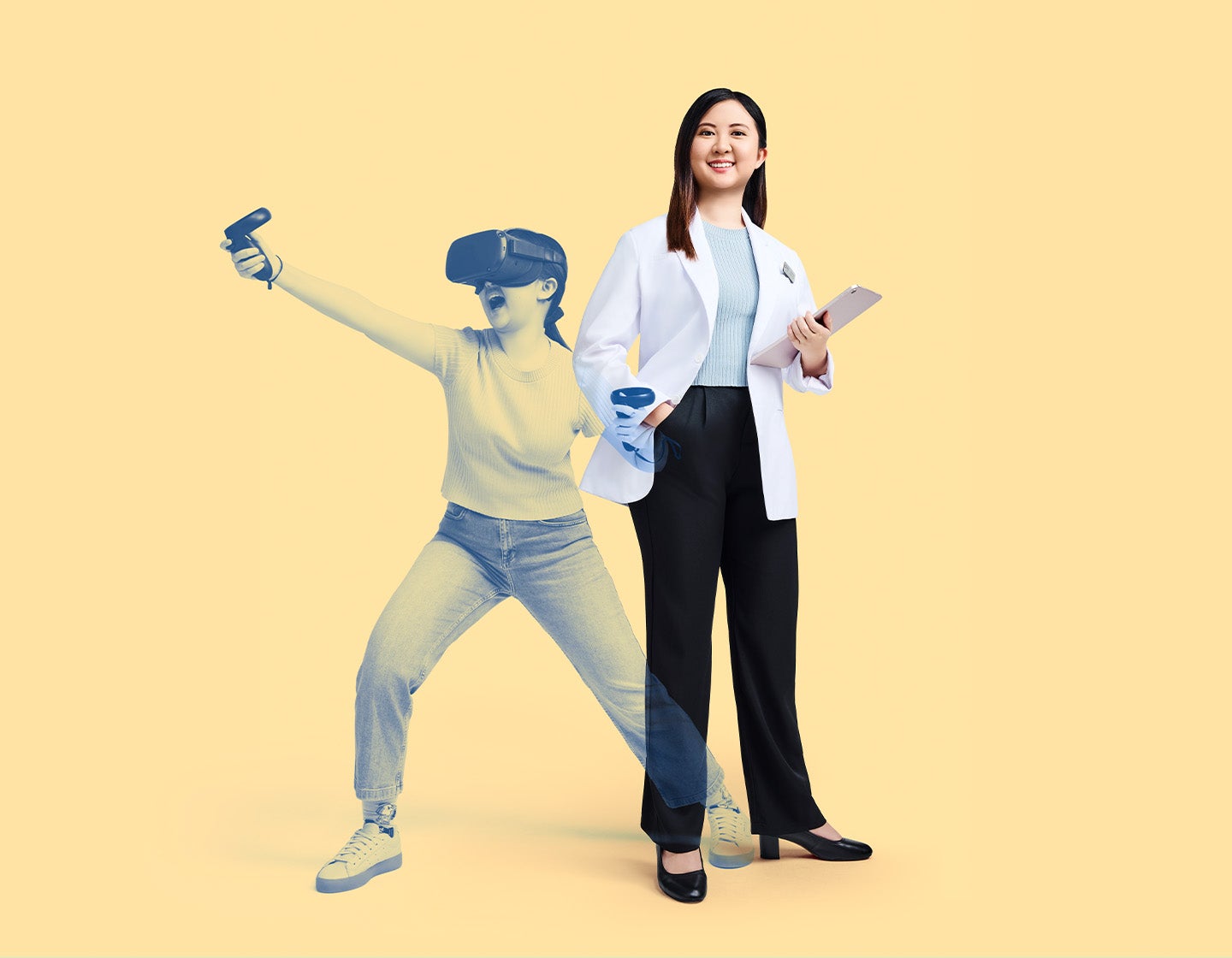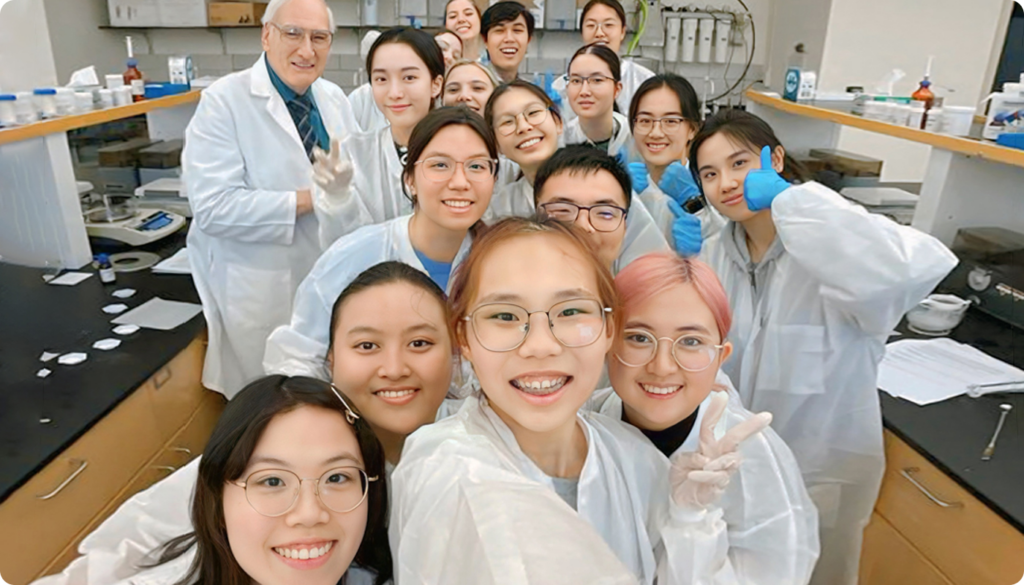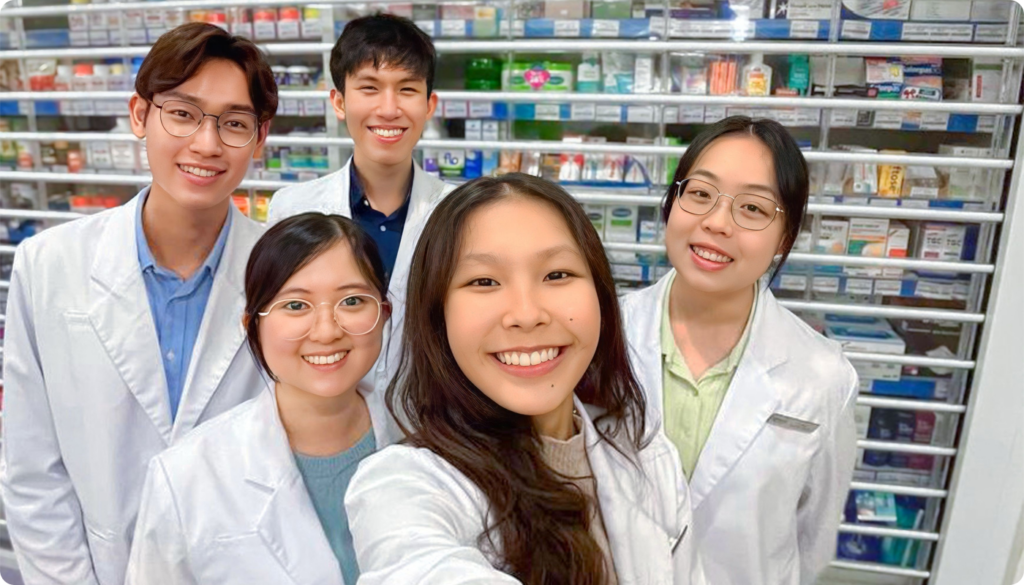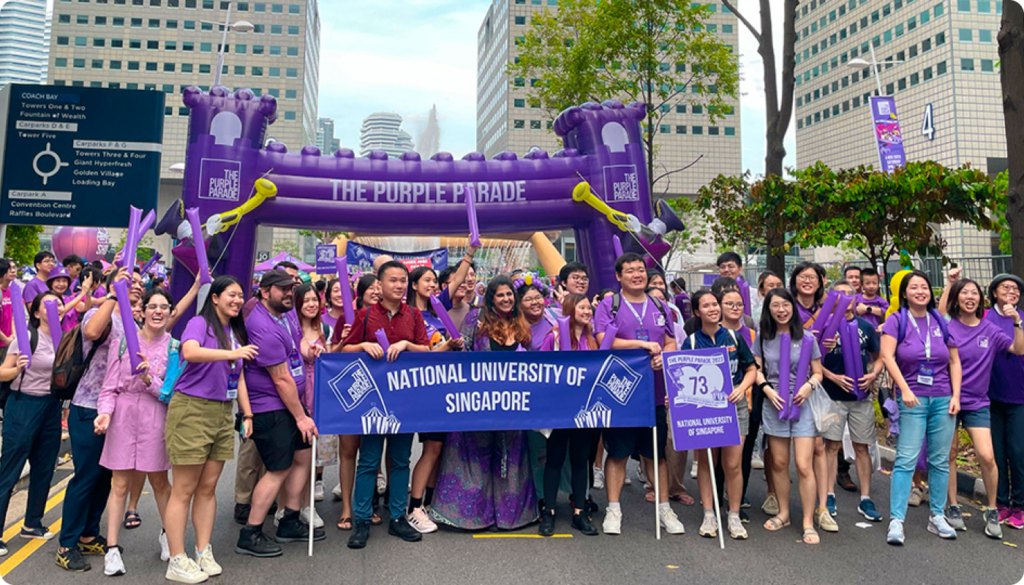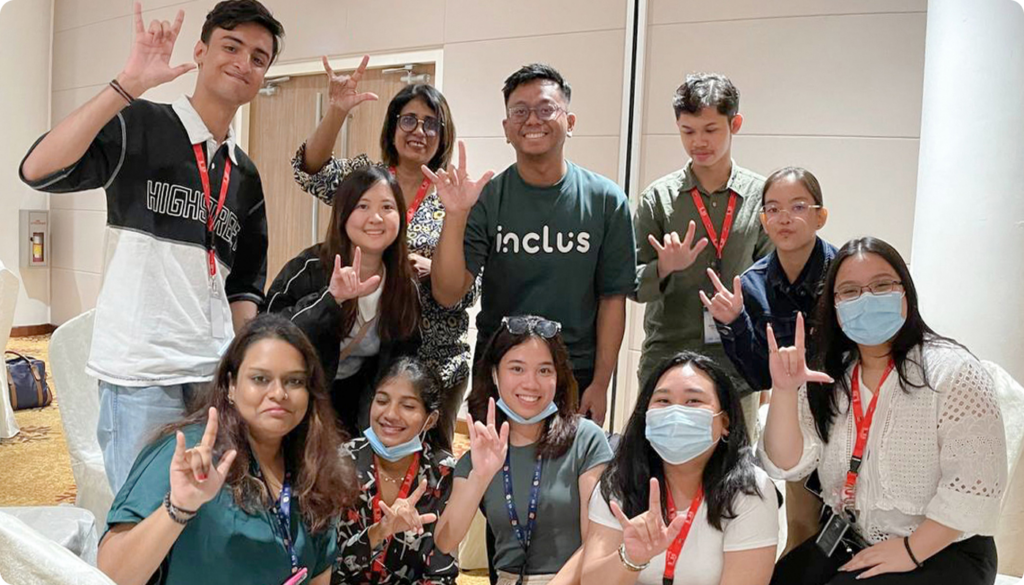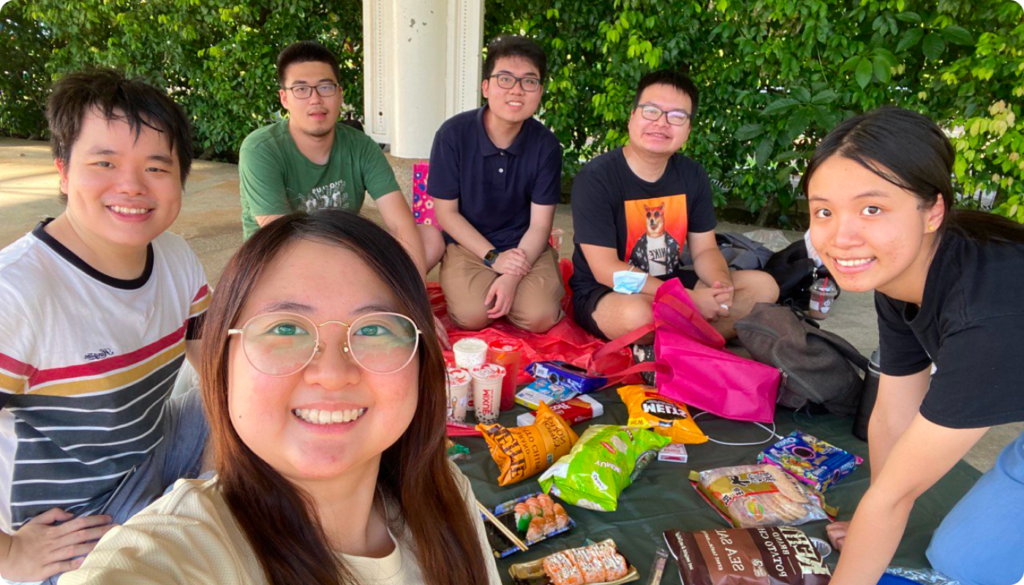On how the NUS population can best welcome and support their peers with disabilities, Nicolette suggests: “The first step is to treat them as equals. Extend your friendship and include them in your projects and activities as you go on the journey together. With good intentions, all things will work out well,” she reassures with a smile.
Many Roads to Your Rome
Prospective students considering the varied options of majors at NUS Science can take heart. The 23-year-old advises: “Go for the option that can open doors for you and lead you to the career you want in the future. In addition, you may wish to closely study the curriculum style of your preferred major to determine if it is aligned with your aspirations and interests.”
For Nicolette, she found her personal sweet spot in the curriculum style of Pharmacy, which blended theoretical knowledge with experiential and applied learning, keeping open her career pathways of being a pharmacist or entering the pharma-industry space.
A Cocktail of Mix And Mingle
Instead of lectures, Pharmacy’s unique curriculum style features interactive classes. The entire cohort is thoughtfully curated into ‘Team-Based Learning’ (TBL) groups to intermingle a diverse mix of Polytechnic, Junior College, and International Baccalaureate students, ensuring a mix of students who have different subject combinations, to best facilitate peer teaching and learning. Experiential-learning courses, also known as Skills Labs, help students develop their soft skills in patient interaction and counselling, as well as clinical reasoning and drug information skills. Come Year Three, these TBL groups are reshuffled once more for a different student mix.
“This curriculum style really helps create more bonding and a closely-knit pharmacy class. What I like is how the culture in Pharmacy is pretty cosy, as we have a compact cohort of 140 to 150 students,” she observes.
For her Final Year Project, Nicolette and her partner decided to create a mobile scanning application that allows patients to quickly scan and access information on their medication, including its uses and possible side effects. The aim is to reduce the workload at polyclinics by empowering patients to independently obtain information on prescribed drugs. “While our app is still in its beta phase, we hope to eventually add more accessibility features to cater to different needs,” she shares.
A Wider Embrace, A Deeper Inclusion
The pro-tip for Pharmacy freshmen itching to dive deep into campus life? “Well, I would say the go-to place for student support, networking, and even industry visits is really the NUS Pharmaceutical Society. It is a great starting point for us all to get plugged in as seniors would mentor the juniors about university life and share their advice. Another option would be to participate in the Pharmacy Orientation Camp and Orientation Week.” Nicolette opines.
What Nicolette most cherished about her NUS experience is not only the very rigorous Pharmacy curriculum, but the peers, friends and mentors who have made her learning journey so memorable and enriching. In particular, staff at the NUS Student Accessibility Unit have been very helpful to Nicolette, such as encouraging her to develop her leadership abilities by becoming President of NUS Enablers, facilitating her learning needs by liaising with the respective teaching staff, and enabling auto-captions for Nicolette during her lectures.


